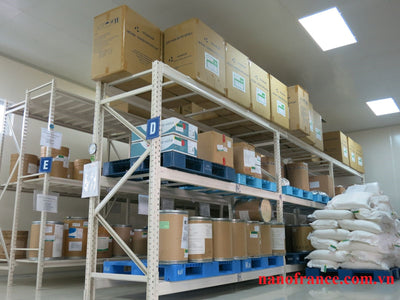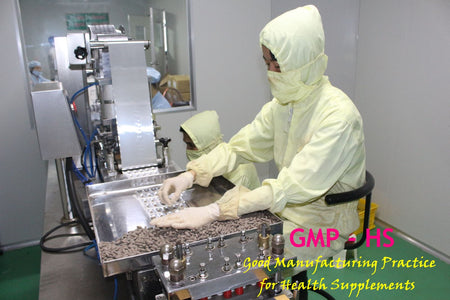Lifestyle changes in menopausal women
Menopause is the transitional period from middle age to old age. Physiologically, it is the natural transition period between the reproductive years and the period of no reproduction and entering the second stage of life. This is a very long process of change, from decreased ovulation function, the ovaries stop producing eggs, hormone levels change, menstruation from disorder to complete cessation, genital atrophy, etc. Usually this period begins at age 40, lasting several years before the last menstrual period to 1-2 years after, on average about 10-20 years.
Menopause symptoms vary from person to person, and can range from mild, transient symptoms to a host of physical and psychological changes.
A common sign is a change in the menstrual cycle as well as the nature of menstruation. Women will naturally see changes in their menstrual cycle such as less, longer and less frequent periods, with periods occurring once every 1.5, 2 or 3 months.
In addition to the common signs of changes in menstrual cycles and other characteristics, there are other signs that cause discomfort and affect women's daily activities and work, such as:
· Feeling hot in the face.
· Sleep disturbances and night sweats.
· Sexual desire disorder, pleasure disorder with symptoms of decreased desire in some people, increased desire in others, but usually decreased pleasure appears more often and it is more difficult to reach orgasm.
· Changes in appearance: Dry, brittle hair. Dry, rough, wrinkled skin due to loss of subcutaneous fat. Breasts become flabby, increasing the risk of breast cancer, voice becomes hoarse, more hair grows on the limbs. There may be less hair growth on the chin, upper lip, chest and abdomen.
· Mood changes: increased sensitivity or vulnerability to emotional events. Other triggers include stress, insomnia, and other life events at this stage, such as the illness or death of a spouse, adult children leaving the family, or quitting a job, retiring, etc.
· Vaginal changes: The vulva and vagina gradually shrink, making women afraid of intercourse because of pain.
· Menopause is often prone to osteoporosis and bone fractures.
Many women entering pre-menopause, although not under the pressure of work or family burdens, are still worried when some signs of aging begin to appear. This aging is a natural change due to the gradual decline in function of body parts. Therefore, women at this stage should maintain an optimistic attitude to help keep their spirits up and their minds light. Women also need to create a life with a joyful, comfortable environment, avoid worries and sadness, and build a scientific work plan to protect their health.
To reduce the symptoms of premenopause, you should do the following:

– Have a scientific and reasonable diet. Supplement foods rich in fiber, vitamins and essential trace elements, especially calcium.
– Cut back on high-fat foods. Fat should provide only 25% to 35% or less of your total daily calories. Also, limit saturated fat to less than 7% of your total daily calories. Saturated fat raises cholesterol and increases the risk of heart disease. Saturated fat is found in fatty meats, whole milk, ice cream, and cheese. Limit cholesterol to 300 milligrams (mg) or less per day.
– Drink enough water, every day should drink 2 – 2.5 liters/day should drink boiled water that has cooled, fresh fruit juice with little sugar such as: cucumber, radish, carrot, tomato, should not drink carbonated soft drinks, water with a lot of sugar.
– Get enough sleep: the body needs 7-9 hours a day to restore the energy consumed through daily activities, so getting enough sleep will help the body stay healthy, mentally comfortable, easier to concentrate, and reduce stress during premenopause.
– Exercise: Scientists in Central and South America have conducted research on the effects of exercise (such as swimming, walking, cycling, yoga, etc.) in premenopausal and menopausal women. The results of the study showed that women who exercised less than 3 times a week had more premenopausal symptoms, specifically hot flashes accounted for about 21%, fatigue and depression accounted for 17% and the risk of obesity was 52% higher than those who exercised regularly.

In addition, regular exercise will stimulate the brain to produce serotonin and dopamine, helping to control mood and alertness. Therefore, regular exercise 30 minutes/day will help relax the mind, sleep well, maintain muscle and bone mass, and help prevent heart and vascular disease during premenopause.
– You should eat foods containing isoflavones (plant estrogens). Soybeans are one of the foods that can reduce premenopausal and menopausal symptoms. Soybeans also reduce cholesterol and reduce hot flashes, night sweats.
By: Bui Thuy









